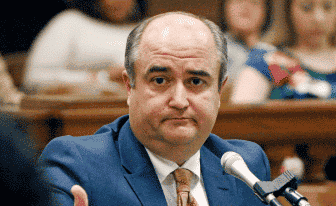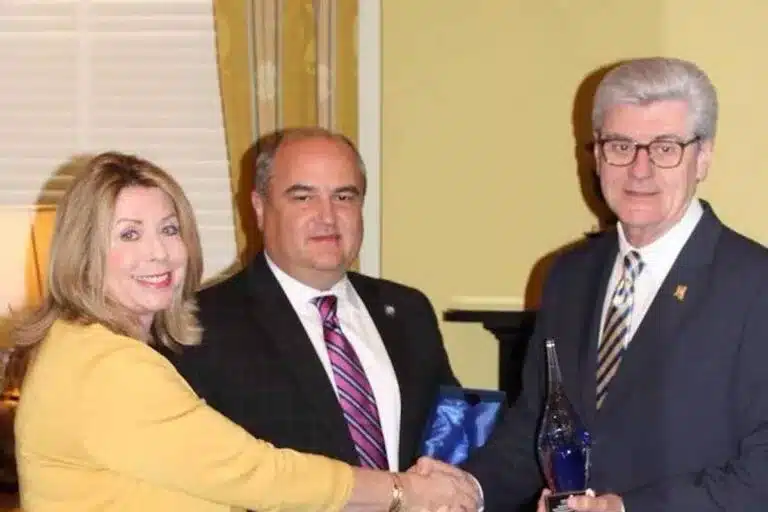
Aiden Robinson of Brandon might look a lot different today if not for the care he received at the JMS Burn and Reconstruction Center in Jackson in 2019.
Aiden, who was 9 years old at the time, was cooking with his father at their home when he accidentally dumped a pot of boiling water on himself, burning over 80% of his body.
“For best results, burn patients need to be seen as soon as possible. Not all doctors or ER staff even know how to treat the skin of a burn victim, so my fear is, what’s going to happen to those patients now?” said Aiden’s mother Kristel Robinson.
Kristel is referring to the closure of the burn center that cared for her son three years ago. Merit Health Central, where the program is housed, announced in early September the program would close in October. It is the only accredited burn program in the state.
In 2021, the center saw nearly 2,000 admissions and 7,261 clinical visits. Surgical cases totaled 2,776.

Now, several employees of the burn center at Merit Health, who did not wish to be named because they feared retribution from their current or future employers, say they are scrambling to find a new home for the program. They were given just over a month’s notice that the program would be closed, they said, and moving the program to one of the other eight Merit Health locations in the state was not something that interested Merit Health or its parent company Community Health Systems.
“We were told Sept. 7 that we had until Oct. 14 to get out,” one employee told Mississippi Today. “Shock was an understatement due to seeing 600-plus patients a month. We are very concerned for our patients.”
Another employee also felt blindsided.
“For something that’s as vital to the community as this – (it was), we’ll go with, aggressive,” another employee said of the hospital’s decision.
Officials with the hospital did not respond to questions from Mississippi Today for this story.
In the September statement announcing the closure, hospital officials cited the pandemic and recruitment challenges.
“The COVID-19 pandemic and the challenging staffing and recruitment environment have made it increasingly difficult for us to recruit the breadth of specialists needed to maintain the burn program, which is the primary reason we’ve made the difficult decision to close the Burn Center effective Oct. 14, 2022,” the statement said.
While employees reel from the shock of the announcement, leaders are in conversations with hospitals about opening the burn center elsewhere, and they are hopeful things move quickly.
After Oct. 14, however, patients will be redirected to one of the regional burn centers in Augusta, Ga., Memphis, Tenn., Mobile, Ala., or New Orleans, La.
Mississippi’s burn programs in recent years have not fared well. The program formerly run in Greenville by Delta Regional Medical Center closed in 2005. Merit Health opened its burn center with the Burn and Reconstructive Centers of America in 2008.
In 2006, before Merit Health agreed to start a center, state lawmakers approached then vice chancellor of the University of Mississippi Medical Center, Dr. Dan Jones.
“The finances of burn care at the time were far less than ideal. Unfortunately, like many health problems, this affects families who have lower incomes more than it does other families … The same problem that was happening in Greenville would become our problem,” Jones said.
He said he went to the Legislature to ask for a yearly commitment to help UMMC run the program. Lawmakers offered UMMC one-time money but no commitment for ongoing funds.

“We made the hard decision that we couldn’t do that,” he said.
Now, more than 10 years later, when asked by Mississippi Today if UMMC is considering taking on a burn center, officials declined to comment.
Before Aiden’s injury, Kristel knew nothing about the burn program. When she and her husband called the ambulance, she assumed Aiden would be taken to Children’s of Mississippi.
“When we arrived (at the burn center), we didn’t have to wait because he was so severe. They let us know that night there was a window of time the doctors needed to save the skin,” she said. “(In order to have) as few surgeries as possible and for recovery to be easier, he would need surgery that night.”
One of the procedures he had was done on his ear. At the time, only three doctors in the country were performing it, Kristel said.

“We’re not just losing a hospital, we’re losing talented doctors, nurses, OT and PTs by the close of this center,” she said.
Aiden required a year of treatment, including some physical therapy, after the accident. He received all of his follow-up care at the burn center clinic, his mom said.
Today, Aiden is 11 years old. The only remnant of his accident is one small scar on his arm and skin that’s extra sensitive to the sun.
“If someone would have told me in 2019 that Aiden would be able to live without scars, I wouldn’t have believed them,” said Kristel.
The post ‘Very concerned about our patients’: Inside the final days of Mississippi’s only burn center appeared first on Mississippi Today.
This article first appeared on Mississippi Today and is republished here under a Creative Commons license.
Read original article by clicking here.





















